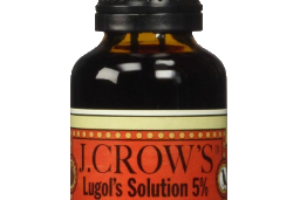Oral health is often an overlooked subject despite it being one of the lowest hanging fruits when it comes to achieving and maintaining overall health.
What isn’t helping our cause in this department is that widely accepted procedures such as root canals are performed en masse, and unknowingly wreak havoc on 100% of people who have them, even though you may not notice said havoc (and I’ll discuss why that is) right now.
The good news is that it’s not too late to course correct if you still have a pulse and a will. In this article, I’ll go over what root canals are, why they’re a terrible idea, and what to do if you have one.
What is a root canal?
A root canal is a dental procedure that began in the 18th century and was intended to treat an infected or inflamed tooth pulp, which is the soft tissue inside the tooth that contains nerves, blood vessels, and connective tissue.
During the procedure, a dentist removes the infected or damaged pulp and cleans and seals the inside of the tooth.
Afterwards, a dentist may recommend placing a crown or other restoration to protect and strengthen the tooth.
Root canals are generally considered a safe and effective way to save a tooth that would otherwise need to be extracted, but this couldn’t be further from the truth.
Root canals – an easy “solution” with consequences
The one and only benefit of a root canal is that you don’t have to go through the process of getting a tooth implant or living with a gap in your smile since you’re keeping your dead tooth in your mouth.
It’s not worth it, I’ll explain why:
Most people in the west think of teeth as somewhat insignificant, protruding bones that help us talk and chew, so root canals are seen as an inconvenient, harmless procedure that you “just gotta do”.
The reality is that a root canal is the only medical procedure where you leave a dead body part in your body, and pretend as though that’s normal.
For example, if your toe were to become infected with gangrene and you didn’t remove it because you didn’t like the minimalist look of having a missing a toe, you would eventually die because the bacteria wouldn’t stay confined to your toe.
The bacteria spreads to other tissues and organs, and the same goes for a dead tooth.
And no, you can’t just remove what’s inside the toe and leave it on. It has to be fully removed.
Even if the infected or damaged pulp is removed, it’s impossible to eradicate the entire infection, and it does not show up on X-Rays due to it’s small size, so dentists will tell you everything is spick and span.
Nonetheless, the bacteria that’s been found in root canal-treated teeth is the same bacteria associated with decaying organic matter, which isn’t rocket science and shouldn’t come as a surprise since the tooth is dead.
There’s no more blood supply bringing oxygen and nutrients to it in order to keep it alive.
Why do most people who have root canals seem fine?
Since a dead tooth is much smaller than an infected, gangrenous toe, for example, it typically doesn’t cause enough symptoms for the average person to connect the dots.
Some people are so physically robust that the root canal will have basically zero impact on their overall health or life expectancy, but even then, it’s a gamble.
This doesn’t mean that it’s not a constant stressor on the immune system seeing that it has to deal with that bacteria on a daily basis for the remainder of your life.
I have a root canal. Now what?
In most cases, you won’t be able to simply go to the same dentist that gave you the root canal and ask to get it removed.
I’ve tried this, and some even got upset, and thought I was insane.
The problem is that most allopathic dentists are drones who regurgitate everything they’ve been taught in dental school and think they’re helping people, when instead they unknowingly help ruin their patients’ health on a daily basis.
You have to find a holistic dentist.
Holistic root canal removal – My experience
I had a root canal on my top front tooth (#11) in 2012 when I had no idea what the implications of a root canal were.
Since then, I have had recurring ear and sinus infections, and other immune-related issues.
When I fully understood that teeth are living appendages connected to organ systems, I became highly motivated to find someone who would safely remove the dead tooth, clean out the socket, and replace the front tooth with a non-metal implant.
After visiting several dentists who all refused to extract the tooth (despite it being a several-thousand-euro procedure) and replace it with a zirconia implant (non-metal alternative to titanium implants), I finally found a holistic dentist who was willing to move forward!
Within just a few days of getting my dead tooth removed from my mouth, I felt lighter, more energetic, clear headed and calm in stressful situations where I previously wouldn’t have been.
Placebo? I’m sure that plays some part.
However:
- A copious amount of vile-smelling puss that had been in my ear that I wasn’t even aware of drained within weeks. It was my right ear, and the tooth was on the right side of my jaw.
- I haven’t had an ear or sinus infection since, nor been sick in any way, for that matter.
One thing to be aware of is that tooth implants aren’t cheap.
My procedure cost me 3,000€, but that’s a small price to pay for removing the burden of decaying organic matter from the body that definitely should not be there.



